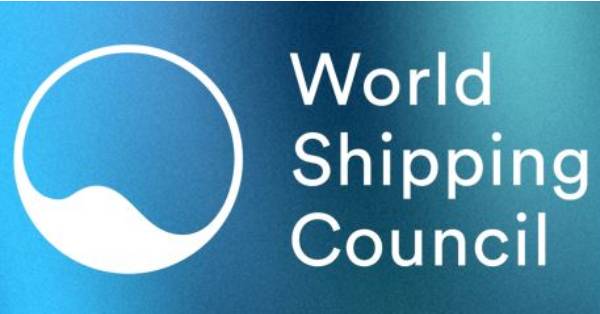In an open letter to decision-makers in Brussels, the World Shipping Council (WSC) together with Danish Shipping and the Methanol Institute urge decision-makers to reach an agreement on the FuelEU Maritime which will help reduce shipping GHG emissions.
The liner sector, including container and vehicle carriers, are leading decarbonisation investment in new fleets that are ready for alternative fuels that reduce GHGs. Future-ready fleets will be demanding more and more green fuels with lower GHG intensity to ensure that we meet decarbonisation targets.
Increasing demand for fuels that reduce GHGs is the main idea of the FuelEU Maritime which in the final stages of negotiation in the political system in Brussels.
To ensure that the future rules will sufficiently take first movers into account, WSC together with Danish Shipping and the Methanol Institute urge decision-makers to negotiate clear performance standards that ensure the uptake of renewably produced marine fuels that substantially reduce GHGs.
“FuelEU Maritime is perhaps the most important of the EU legislations for shipping. Using performance-based targets with quantitative rigor based on lifecycle or Well-to-Wake metrics, FuelEU provides shipping companies the clarity needed for continued first mover innovation that will expand to broad uptake of renewable fuels across the fleets carrying essential cargoes to EU communities,” says Jim Corbett, Environmental Director for Europe at the WSC.
To further accelerate the uptake of the greenest fuels, the trilogue partners are negotiating whether to apply a “multiplier” for renewable fuels of non-biological origin (RFNBOs or e-fuels). Multipliers reward the use of new fuels in a phase-in period to accelerate shipping’s decarbonisation transition and promote the development of new e-fuels. This will increase demand of the new e-fuels and thus stimulate the production of new fuels and make them more accessible.
“We support aggressive and achievable performance standards, including the use of performance multipliers, to ensure the best and most innovative development of practical pathways to renewable marine fuels,” says Jim Corbett.
Read the letter below:
Ambitious marine fuel standards: Tackling climate change and developing business opportunities
An open letter to the EU Parliament, Commission and Council from Danish Shipping, Methanol Institute, and the World Shipping Council in connection with the FuelEU trilogue negotiations.
Green fuels are essential for the maritime sector to deliver on the EU Green Deal and the Paris Agreement. The technologies for making the green fuels exist, but production capacities must be scaled up to make the fuels available for shipping. FuelEU Maritime can provide the certainty needed to ensure investments in scaling up green fuels, but the ambitions need to be strengthened to send a clear market signal. Danish Shipping, Methanol Institute, and World Shipping Council therefore call for increasing the ambition in the FuelEU, maximising GHG-intensity reduction from 2035 to 2050 and supporting early use of green e-fuels.
The FuelEU Maritime proposal requires ships to reduce the GHG intensity of their fuels by 75% in 2050. Given the EU goal of climate neutrality by 2050, and the maritime industry setting increasingly ambitious climate goals, it is striking that the proposal requires a 75% reduction. The technologies available for ships and commitments to scale up production and supply of renewable fuels support increasing the level of ambition, and legislators should seize the opportunity to speed up the green transition in future legislation.
Firstly, the reduction of GHG intensity must be more ambitious. As proposed the stepwise approach with incremental targets reflects that the production of e-fuels is still in its early stages. Over time new ships will enter the fleet and e-fuels will most likely become a common solution. Therefore, the reduction of GHG-intensity should be more ambitious, accelerating the pace of decarbonisation.
Secondly, recognising that the production of new e-fuels is still at an early stage, a dedicated mechanism to start production at scale is required. For example, a performance multiplier for green e-fuels such as e-methanol and e-ammonia will encourage earlier adoption that helps achieve long-term reduction in GHG intensity. We support the joint efforts by Parliament and Council to use multipliers to strengthen demand incentives sooner and send a clear signal for production facilities to expand. Moreover, introducing a multiplier has the advantage of being technology neutral and hence not pre-empting one production pathway rather than another. With such a signal the market and technology development will pave the way. As green fuels become abundant, the multiplier should be gradually phased out.
We therefore call on politicians to raise the level of ambition to benefit the climate and develop a whole new energy production line.









































